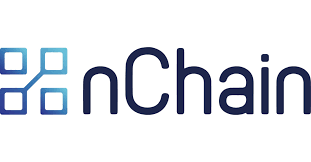Published
- 08:00 am

MarketInvoice, the world’s largest peer-to-peer online invoice finance marketplace, has joined the UK FinTech Financial Crime Exchange (FFE), a joint initiative by think tank RUSI and risk consultancy FINTRAIL, launched today.
The FFE will promote an increased understanding of financial crime issues faced by the FinTech industry, ensuring that their organisations are not misused for financial crime purposes.
The FFE brings together FinTech firms who have agreed to collaborate, by sharing best practice and pooling information on financial crime typologies to protect their customers and strengthen their sector’s ability to detect and counter the global threat of financial crime, including money laundering, terrorist financing, bribery and corruption, tax evasion and market manipulation.
The UK FinTech sector is at the forefront of the global FinTech revolution, contributing £7b to the UK economy. This coincides with a growth in the risk of financial crime driven by the expansion of digital channels and the increasingly interconnected nature of global finance and business.
As the UK continues to lead the global FinTech revolution, UK FFE members are taking a proactive and robust stance against financial crime and the negative impact it can have on customers, communities and the financial services industry. Through collaboration members are sharing information on typologies and leveraging advanced technology to deter, prevent and detect criminality.
Anil Stocker, CEO and co-founder, MarketInvoice commented: “Fintech businesses are using tech solutions to address today’s problems. We use AI and Machine Learning in our day-to-day business, ensuring UK businesses receive meaningful working capital quickly which they need to grow. In this endeavour, we must also have the capabilities to tackle financial crime. We look forward to collaborating with FFE members to ensure high standards and to secure the industry’s defences.”
Related News
- 03:00 am

Rival Systems (Rival), an award-winning provider of trading and risk management software, and Lime Brokerage (Lime), a Wedbush Company, today announced an integrated solution combining Rival’s front-end trading and algorithmic strategy development software with Lime’s low latency execution services. The new offering, available immediately, enables Rival’s clients to access all U.S. equity markets and a wide range of dark pools via Lime’s exchange gateways and extensive equity memberships. The integrated solution further enhances Rival’s capability to provide clients with a comprehensive platform for trading futures, equities and options.
Rival Systems CEO Robert D’Arco said: “We’re always looking for ways to bring best-of-breed technologies together to quickly meet our clients’ needs. By integrating Rival Trader and Rival API with Lime’s exchange gateways, our non-broker dealer clients have a fast and cost effective way to access the equity markets. Clients can leverage the integrated solution to efficiently execute equity hedge orders, trade synthetic equity spreads and easily integrate equities into their automated trading strategies. We look forward to working with the Lime team in providing mutual clients with the best technology available in the market.”
Tony Huck, President and Chief Operating Officer at Lime Brokerage, said: “Rival brings to this partnership a powerful front-end trading system with sophisticated options analytics and order entry capabilities, and superior access to the futures and options markets. By integrating Lime’s broad connectivity to the equity markets through a low latency gateway, we can deliver a vast array of seamless trading technologies to our respective clients.”
Related News
- 06:00 am

Emirates NDB, a leader in the regional banking industry, unveils the launch of “Cheque Chain”, a technological advancement that will embed blockchain technology into cheques to strengthen their authenticity decrease potential fraud. The implementation of the Cheque Chain initiative is scheduled for the second half of the year.
The first stage of the initiative will see the printing of the unique QR (Quick Response) code, on every page of newly issued cheque books, this way reducing risk of fraud. In the following phases, the QR code will register each cheque on the bank’s blockchain platform. It is essential in order to ensure that once the cheque is received and cleared under the bank’s ICCS technology, the bank staff will be able to verify the cheque’s identity and have its source accessible all the time.
In addition to that, a string of twenty randomly selected characters will be added on MICR band of the cheque page using non-MICR ink. The MICR band is a character-recognition technology used mainly by the banking industry to ease the processing and clearance of cheques and other documents. It is found at the bottom of cheques and other vouchers and typically includes document indicators like bank code, bank account number, cheque number, cheque amount etc.
The Cheque Chain initiative is the beginning of a significant strategy by Emirates NBD to integrate blockchain technology into existing products and services, with the objective to implement global-best digital security systems in line with the digitalization of its products, processes and services. Going forward, it will also be possible to validate the cheque at source either through self-service or at presenting bank using the QR code.
Abdulla Qassem, Group Chief Operating officer commented: “Having established our leadership in the UAE banking sector in exploring the potential of blockchain technology, we are delighted to be the first bank in the country to utilise this remarkable new technology to strengthen and upgrade our internal processes. The launch of this initiative is also in line with our commitment to customers to prevent fraud and ensure the security and safety of their transactions at all times. Cheque Chain will bring an added layer of security to our cheque clearing system, and ensure that each cheque issued will be verified under the bank’s system with its own unique QR code providing significant improvement in cheque security.”
Related News

Robert Gothan
Founder and CEO at Accountagility
The number of C-level job titles in the boardroom seems to be growing more and more each year, with positions like CHRO, CTO and CMO now present in several organisations. see more
- 05:00 am

Cashplus announces today the launch of its transaction API. Initially this API will enable Cashplus’s accounting partners to support their clients in the SME sector where there is a huge demand for simple, online servicing.
From a technical perspective, the API is released via Cashplus.io. Their RESTful Web API services are grouped into vertical business domain areas, and delivered through a Swagger user interface. This allows Cashplus to not only publish transactional middleware operations, but also provide usage documentation which simplifies implementation and client side consumption.
Although compliant with the Open Banking initiative, Cashplus will initially provide this API to contracted partners of APS financial, the issuer behind the Cashplus Business Account.
Rich Wagner, CEO of APS financial, states “Our long-standing partners will be the first to fully benefit from the extensive transaction data held within our API. In addition to allowing more efficient reporting for their clients, these partners will work with us to further refine it for wider use. We’re really excited about this launch and can't wait to roll out our API to the wider developer market, including over 100 existing partners who have already expressed an interest .”
To handle the huge demand, APS financial has launched a registration process at Cashplus.io to capture partner interest for current and future Cashplus APIs.
”This is only the beginning of our API roadmap of initiatives. Our strong technology delivery team will be launching other core APIs for the banking industry throughout 2017. It will be a great year for our partners and the SMEs we both serve”, declared Rich Wagner.
Related News
- 04:00 am

INTERXION HOLDING NV, a leading European provider of carrier and cloud-neutral data centre services, today announced that the London Metal Exchange has expanded its footprint at Interxion’s London data centre campus with its newly upgraded trading platform, LMEselect.
Home to over 200 capital markets participants including industry-leading banks, proprietary traders and hedge funds, Interxion’s London data centre campus is at the centre of the European trading landscape, making it a logical choice to locate the primary LMEselect platform.
“Interxion provides the ideal environment for our new LMEselect platform, with best in class power and cooling and excellent cross connect access to the exchange,” comments John Lee, the LME’s Chief Technology Officer.
In addition to making Interxion London the primary production location of LMEselect for base metals, the exchange will also list its new LMEprecious products on this platform, when they launch on 10th July 2017 (subject to regulatory approval). LMEprecious responds to market demand by making available an innovative new suite of exchange-traded, loco London precious metals products.
Strategy and Market Director for Financial Services at Interxion, Bill Fenick states: “We are pleased to see the expansion of the LME in our thriving Financial Services community here in London. They will be able to take advantage of our state-of-the-art facilities as well as interconnect to their customers and ensure the best possible performance from their infrastructure”.
Interxion recently announced that it is expanding its London campus, with a £30 million investment in a third London data centre, known as ‘LON3’. Scheduled to open in 2018, LON3 will add 1,800 sqm to Interxion’s uniquely located central London data centre campus, situated between the Square Mile and Tech City.
Related News
- 01:00 am

Convenience and security are driving consumer interest in a digital on/off feature for misplaced debit cards. Wells Fargo is the latest to introduce the feature.
“I remembered the bank has this feature now and I just went online and turned off my debit card switch,” said Leo, a Wells Fargo customer who also works as a program manager for the company. “And I was lucky. I found my card the next day — under the seat of my car. So I just went back online and turned my card back on. It was easy.”
Research shows millions of people each year find out their debit cards are lost, misplaced, or stolen, according to Javelin Strategy & Research. With billions of dollars at risk from identity theft and other fraud, many feel a rush of panic when they first discover their cards missing.
Having access to a digital on/off capability helps ease those fears, industry experts said. Wells Fargo recently became one of the latest banks to introduce the feature for its debit card customers through online and mobile banking. (A similar feature is under development for consumer credit card customers, with a rollout tentatively scheduled for next year.)
“Wells Fargo’s latest innovative security feature will help better protect consumers at the convenience of their computer or mobile device,” said Adam Rice, communications director for the Financial Services Roundtable, an industry advocacy and research group. “The financial industry continues to lead the way, using technology to enhance security while providing a better, more robust customer experience.”
The feature puts customers in control, gives them the ability to block anyone from using their misplaced card, and allows them to unblock it after they find the card, said Kathy Yee, head of product management and development for Wells Fargo’s debit/prepaid card business.
Customers have shown a strong interest in the new online/mobile feature, Yee said, and it has quickly become more popular than calling a phone banker to access the capability, which has been available since 2015. After the online/mobile feature was introduced in late March, more than 100,000 customers navigated to the page to check it out in the first 14 days.
“It amazes me to see this volume — and we haven’t even done any marketing of it yet,” she said. “It is impressive how many people are just seeing the service is there, getting on their phone, and using it, without hesitating. They immediately recognize the convenience factor.”
Gerri Detweiler, a personal finance expert and author, said the digital on/off feature’s convenience and security advantages are driving consumer demand.
“Everyone knows it can be a real hassle to close accounts, change account numbers, and reset things like auto-bill payments,” she said. “I’ve heard from many consumers this is definitely a feature they want and find helpful in today’s environment when everyone is so busy multitasking. It is a real plus to be able to have more control, especially where this is so much potential for fraud.”
“It certainly saved me a lot of inconvenience,” said Leo, the Wells Fargo program manager. “It was such a time saver and gave me a lot of peace of mind.”
Wells Fargo has now taken the next step for this technology, allowing customers to activate their new debit cards via online or mobile, Yee said. That technology was first piloted with a select group of Wells Fargo team members, and was just introduced to customers earlier this week, she said.
Related News
- 08:00 am

Blockchain pioneer nChain announces the appointment of Bitcoin Foundation Executive Director Jon Matonis as its new Vice President of Corporate Strategy. In this position, Matonis will support nChain's business growth by developing commercial relationships, and evaluating opportunities for strategic investments and acquisitions.
Jon Matonis is widely recognised as a leading Bitcoin researcher and is a non-executive board director for several notable companies in the space. Since 2012, his technology and security writings have appeared in publications such as Forbes, CoinDesk, Bitcoin Magazine, American Banker, and PaymentsSource.
Jon is also a founding director for the Bitcoin Foundation which served as the industry's first nonprofit trade association originally chartered to provide financial compensation for voluntary protocol code developers and to promote the vision of Bitcoin worldwide. His career has also included senior roles with Sumitomo Bank, VISA International, VeriSign, and Hushmail.
Additionally, Matonis created the first and leading general price index for Bitcoin known as the Bitcoin Price Index (BPI), hosted the largest ever Bitcoin/blockchain conference to date in Amsterdam during 2014, and enlisted seven regional chapter offices to the Bitcoin Foundation from countries such as France, Germany, and Bangladesh.
Arthur Davis, Director of nChain Holdings Limited, comments: "Jon was immediately attractive to nChain. During his notable career, he has consistently led the integration of financial services and cryptography. His work has included foreign currency trading for Visa International, financial platform sales for RSA's VeriSign – securing its first $5 million in revenue – and end-to-end encrypted messaging for Hush Communications where as CEO he recruited PGP's Phil Zimmermann as Hushmail's Chief Cryptographer.
"Jon's philosophy for the Bitcoin protocol and network is fully in line with nChain's vision of on-chain scalability with decentralisation, advanced native scripting for the construction of smart contracts, and a dedicated move away from monolithic software.
"We are excited to have Jon's deep industry experience on our team, and look forward to working with him to achieve our vision for the Bitcoin blockchain."
Bitcoin is the dominant value transfer protocol. The collective computing power directed to its network is now 3.7 exahashes-per-second and growing, making the Bitcoin blockchain best suited to directly enable and facilitate nChain's transformative vision.
In accepting the new management team position, Matonis comments: "The resources and funding in place at nChain provide a unique opportunity to reshape the existing landscape of Bitcoin protocol influencers. It is imperative that we move towards a status quo where the actual protocol standard is separated from its primary reference implementation, similar to the existing architecture of the Linux kernel and its low-level abstraction layer."
In line with this view, nChain advocates for the formation of a neutral standards organisation to coordinate and manage the Bitcoin protocol and technical standards which in the long-term will result in a more robust software design and a flourishing of compatible implementations.
Matonis adds: "The gradual elimination of trusted third parties from our economic and legal infrastructures belies a serious and unprecedented reorganisation of many legacy social structures. The winners will be those select individuals and entities that finally liberate themselves from the current centralising, rent-seeking chokepoints. I am excited to work with nChain to support growth of the blockchain ecosystem for everyone's benefit."
The quality and breadth of relationships that Matonis brings to nChain allow the company to quickly ascertain and exploit available market opportunities, and to assist its business partners to get up to speed rapidly on the design and implementation of disruptive solutions that challenge the traditional gatekeepers.
In his role with nChain, Matonis will also continue providing thought leadership on blockchain technology. In 2011, Matonis was named Person of the Year by Digital Gold Currency Magazine and in 2015 he was appointed to the Editorial Board for cryptocurrency and blockchain technology journal Ledger. Currently, he is noted on the lists for both the Top 100 Fintech Influencers and the Top 100 Blockchain Insiders in the Crypto Sphere.
Related News
- 08:00 am

Bloomberg announced today it has received approval to issue and maintain legal entity identifiers, or LEIs, as an accredited Local Operating Unit (LOU) of the Global LEI System (GLEIS). Bloomberg joins a select network of LOUs accredited by the Global Legal Entity Identifier Foundation (GLEIF) to create, assign and maintain LEIs, which are increasingly being utilized by regulators to provide greater transparency into financial markets and lower risk for market participants.
Bloomberg can now issue and maintain LEIs for entities through its LEI request and registration portal: lei.bloomberg.com.
Peter Warms, senior manager of fixed income, symbology and entity content at Bloomberg, commented, ‟The LEI system helps market participants -- both public and private -- access an open source standard for identification that will be used to better understand risk across the global financial marketplace. We're proud to be a part of this global effort to adopt LEIs, enhance the quality of financial data and bring transparency and efficiency to the capital markets.ʺ
Entities that need, or are required to obtain, an LEI can use Bloomberg's portal to register for a new LEI and maintain, renew, or even transfer existing LEIs from existing LOUs to Bloomberg. The site provides for ease of use while maintaining the basic tenets of privacy and service. Entities will be able to apply for LEIs through the Bloomberg LOU in one of three ways:
1. Directly through the Bloomberg LOU website at lei.bloomberg.com.
2. Via Bloomberg’s Entity Exchange, a platform for securely exchanging data and documents related to opening and maintaining trading accounts.
3. On the Bloomberg Terminal at LEI <GO>.
“Accreditation is the process by which GLEIF evaluates the suitability of organizations seeking to operate within the Global LEI System as issuers of LEIs and custodians of LEI reference data. Becoming a member of the Global LEI System via GLEIF accreditation is a globally recognized designation of commitment to data quality and customer service. GLEIF looks forward to cooperating with Bloomberg in its role as an accredited LEI issuer” said Stephan Wolf, CEO of GLEIF.
Bloomberg's Global Data Group also supports Bloomberg's responsibilities as a Registration Authority and issuer of the Financial Instrument Global Identifier (FIGI) standard under the auspices of the Object Management Group.
"The use cases for the LEI are coming into focus because of MiFID II's January 2018 implementation deadline. MiFID II has a clear directive: 'No LEI, No trade'", commented Steve Meizanis, head of Entity Content Management at Bloomberg, ‟U.S. institutions that want to continue doing business with trading counterparties in Europe will need to obtain an LEI in order to comply with MiFID II and other regulatory mandates in Europe and around the world. We look forward to helping Bloomberg clients and other organizations adhere to these requirements by providing a seamless and cost effective way for them to request and maintain their LEIs.ˮ
As a leading provider of financial information and reference data, Bloomberg maintains information for more than 4 million public and private entities. Bloomberg's entity coverage includes basic business card data (addresses, phone and fax numbers), registry information, full sanction coverage as well as hierarchical data consisting of immediate parent, ultimate parent and obligor.
Related News
- 03:00 am

Today, Mastercard announced the completion of its acquisition of Vocalink, a leader in bank account-based payments. Vocalink’s key bank account-based technology will allow Mastercard to expand beyond card-based payments to drive the major types of electronic payment transactions.
“This is a transformational deal,” said Michael Miebach, chief product officer, Mastercard. “This acquisition brings Vocalink’s world-class technology and world-class people to Mastercard at a time of continued change in payments. I am eager for what the future will bring: more innovation, inclusion and choice that lets people, businesses and governments pay the way they want.”
The Vocalink technology will enable Mastercard to further innovate retail transactions and expand in payment flows such as person-to-person, business-to-business and government disbursements.
“Joining the Mastercard family brings tremendous new opportunities to Vocalink, our customers and our team,” said Paul Stoddart, CEO, Vocalink, a Mastercard company. “Our home base of the UK of course remains a top priority as we continue to innovate on our bank account-based payments platform and drive value through services such as fraud analytics and consulting. We also look forward to drawing on Mastercard offerings and expertise to expand to more countries and more customers around the world.”









